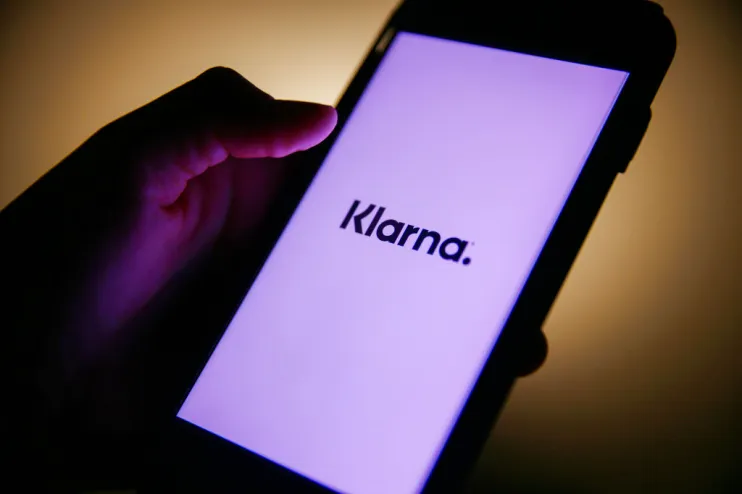Klarna closes losses and touches monthly profit as cost-cutting drive bears fruit

Buy-now pay-later giant Klarna has slashed its losses and touched profitability for the first time this year after rolling out a hefty cost-cutting programme and driving down the amount of customers defaulting on payments.
In its half year report today, Klarna revealed it had closed its losses to SEK 2.115bn (£153m) from SEK 6.37bn last year as the total value of payments using Klarna products ticked up 14 per cent in the period to SEK 449.3bn (£32bn).
The Swedish fintech firm said it had also posted its first month of net profit in the second quarter after boss Sebastian Siemiatkowski set the firm on course for a post-summer target of profitability mid way through last year.
The amount of customers defaulting on their payments meanwhile fell 41 per cent, taking the firm’s global credit loss rate to 0.39 per cent across the period.
In a statement, Siemiatkowski said he was “super proud that we have returned to black numbers” ahead of the target the firm set last year.
“Some claimed Klarna would face difficulties in the tough macro-economic climate with high interest rates, but having led the company through the 2008 financial crisis I knew we had a strong and resilient business model to see us through,” he added. “Despite the volatile environment, we have done exactly what we set out to do.”
The shift back into profit comes after a rigorous cost-cutting drive over the past year that has seen Klarna shed more than ten per cent of its staff and roll-out more fees to customers.
After a period of rapid expansion, Siemiatkowski announced he would be reining in growth and pivoting the firm toward profitability as tech firms globally were buffeted by a major downturn.
Klarna, once Europe’s most valuable private company, was forced to slash its valuation 85 per cent to $6.7bn last year in order to raise cash as investors soured on loss-making start-ups.
Bosses have been looking to expand beyond the firm’s buy-now pay-later bread and butter to become an AI powered shopping superapp.
In its report today, Klarna said AI was helping it slash costs across the business by slashing the time needed to serve customer. AI was helping save an average of 19 seconds per interaction, amounting to over 60,000 hours annually, Klarna said.
Siemietkowski has said recently he is going “all in” on AI to fuel the firm’s super app ambitions.
The firm’s flagship pay-later product enjoyed astronomical growth through the pandemic as shoppers flocked online to buy goods.
However, lawmakers globally have since been tightening the screws on the products as shoppers turn to the tools amid a cost of living crunch.
UK regulation is due to be ushered in later this year after a much-delayed process regulatory process.